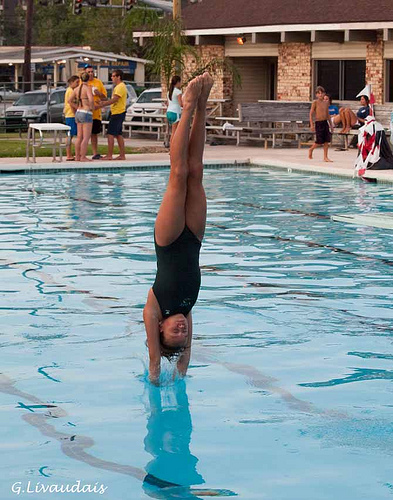No one knows what he can do till he tries. – Publilius Syrus
What does that mean?
That is an interesting observation. It’s so true, but I had never thought about it in that manner before. How do you know what you can do? You do it. You either succeed, or you fail. Now you know.
It helps to remember that failure isn’t permanent, that you can learn from what went wrong, and make it better next time, eventually paving the way for success, for actually doing what it is you set out to accomplish.
The question is “Are you willing to undertake the endeavor?” I, like Yoda, dislike the word ‘try’ as I see it as having the connotation that you’ll kinda sorta put some effort in and see what happens. If it is worth doing, do it, don’t just kinda sorta try. Right?
Of course, there is always the chance that you will succeed, and surprise yourself (among others). It has been known to happen on occasion. But until you undertake the attempt, you will not know if you can. It is the test that proves you can, or that you cannot.
Why is effort important?
As I mentioned above, I dislike the word ‘try.’ Effort is what gets things done, and ‘try’ sounds like such a wishy-washy word. It doesn’t convey any real authority, it has no great motivational quality, and it does not stir the soul. At least that is my perception of it.
What gets things done is effort. Only through the efforts of millions of hours of labor did the pyramids take their shape. They didn’t ‘try,’ they undertook the endeavor, and kept at it until they found the best ways, and then did what it took to make it complete.
Effort has to be tempered by research and on-the-spot learning. No amount of effort will get the sun to rise in the west. Unless, of course, you have a jet plane capable of moving faster across the surface of the earth faster than the sun can set. But that will take some research, right?
Where can I apply this in my life?
A big portion of this quote is simply the doing of the thing. That involves overcoming fear, both of the event itself as well as the possible outcomes. Sometimes that can be mitigated by research, or by finding others who had tried and succeeded so that you might learn the secrets of their success.
When I was a small child, I loved to swim in the local pool. At one point, the swim class I was in was learning to swim in the deep end, and then to go off the diving board. I had no problems with the swimming, and enjoyed that part. The terror came when it was time to go off the diving board.
We all lined up and I kept moving to the back of the line, as there were several of us trying to be the absolute last one to go. Eventually it was my turn, and I got to the end and froze. I wasn’t ready to undertake this particular endeavor.
All the encouragement of the coaches and kids didn’t help. Eventually my mom chased me off the board, and I managed not to belly-flop, and (much to the chagrin of my mom) asked if I could do it again. I found out that I could do it, and that I liked it.
What are some of the things you don’t know if you can do? Can you write a blog? I didn’t know until I did it, and I am still going. Grab some paper and start a list of things you haven’t done, or haven’t done in a while, that you’d like to do, or do again.
For each item on your list, take a moment and consider all the reasons why you have not yet done it. Is there something about it that gives you pause or generates some concern? Is there an unknown about it which you need to know more about before you’re ready to attempt it?
What can you do to calm your fears or trepidation? Can you find someone who has done this same thing before, and talk to them about what worries you? Can you do research on the safety or survive-ability of the event? Can you find out how many people have been killed on stage at their first public speaking engagement? 8)
Public speaking is something I’ve been able to avoid for most of my adult life. While I know I will worry excessively and be emotionally distraught (both solely of my own doing) in the time leading up to the first event, I am certain I will survive, and probably even enjoy it.
Which of the items on your list do you wish to start working on first? Select one and jot down a short plan for the big steps to get you from where you are now to where you need to be to do it. It will only take a few moments of your time, so add the steps on the paper.
What do you need to find out, who do you need to talk to, what arrangements need to be made? Take a moment to determine in what order things need to occur. Now select something you do to get started. Can you look something up online, call someone to talk about it, or to arrange for one of the other steps?
You won’t find out if you can do it by talking or thinking about it. You can only gain that knowledge by the act of doing. What are you waiting for? Take that first small step, and begin the undertaking of the endeavor. Then you will know.
From: Twitter, @DennyCoates
confirmed at : http://www.brainyquote.com/quotes/quotes/p/publiliuss140851.html
Photo by Greg L. photos







